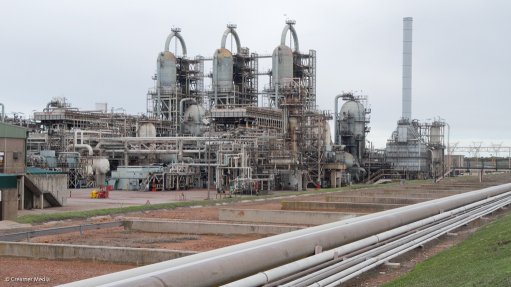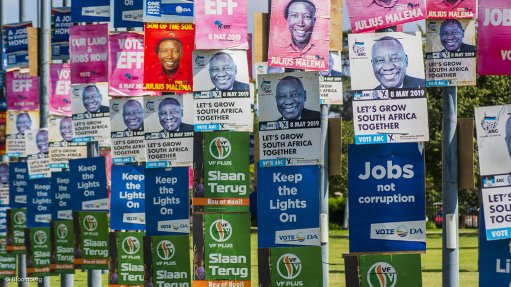Solving nonrevenue water challenge could improve the fortunes of communities
Water represents a major revenue source for municipalities, but about 41% of non-revenue water (NRW) generated by local towns and cities goes “straight down the drain”, cost-wise, laments global water technology company Xylem Africa marketing and strategy manager Chetan Mistry.
NRW is water that is lost before it reaches a commercial consumer or remains unbilled owing to leaks, poor metering, theft and other unaccountable losses.
South Africa's NRW situation is quite dire at 41%, compared with the global best practice of 15%. The global average, however, sits at about 35%, according to 2030 Water Resources Group.
Numerous studies have identified the problems and strain caused by NRW and there is a general acknowledgement that South Africa's approach to its water infrastructure has aggravated matters, Mistry says.
“NRW is most common among existing infrastructure, whereas the State has put the focus on new infrastructure. This approach removed many incentives for municipalities and investors to focus on maintaining older systems,” he adds.
He laments that new infrastructure “doesn't tackle the various factors that create NRW”.
While many reports and experts have called for systemic solutions that focus on what is already out there, Mistry questions whether these goals are achievable locally.
NRW is a challenge in many parts of the world, including first world economies, as decaying infrastructure and poor management of water revenue streams are root causes for NRW in most countries.
NRW often results from a lack of oversight and data gathering, such as unread meters or misreported meters readings. Leaks are another cause of water revenue loss, though it is not always the highly visible leaks, says Mistry.
“When those appear, the underlying issues and revenue losses have been perpetuating for some time. Often, an unidentified small leak can lead to larger infrastructure failure as it denotes deteriorated pipe conditions that might collapse. On critical lines, this may mean days without water as the infrastructure is repaired, compounding the losses."
REDUCING NRW
Papers such as “Counting the lost drops: South Africa's study into non-revenue water” and work by the Development Bank of Southern Africa (DBSA) push for systemic solutions.
Mistry refers to the general five steps to remove NRW including, initially, modernising management.
Over 60% of South African municipalities have poor to terrible water record-keeping, according to the Water Research Council.
“It results in the poor collection of revenue, the leading cause of NRW. Part of the problem is that data for business functions, asset management, leak detection and forward planning remains in silos.
“If municipalities used modern management platforms to merge the data into straightforward reports and dashboards, they could quickly identify water revenue losses,” he says.
Investment in existing infrastructure can incentivise municipalities to pursue systemic investigations of water losses.
Mistry says it also makes projects around existing infrastructure less attractive to investors.
“Yet many case studies demonstrate that focusing on what you have is by far the best way and most cost-effective to address NRW. Early wins include improving sensor data from water meters for revenue collection.”
Leaks and stresses should also be identified as part of a systemic and broad strategy, which would help make and keep significant gains.
“Modern leak and stress detection technologies make this possible, using acoustics and electromagnetism to scan hundreds of kilometres of pipe network within hours,” Mistry suggests.
Additionally, he notes that best practices should be promoted, considering that NRW is a global problem where roughly 24% of countries have NRW rates of 40% or higher.
“But many have bucked the trend and did so by using established best practices. The word 'systemic' keeps appearing in NRW conversations because it's a question of culture and ongoing practices, not isolated remedies.”
Private investment should also be encouraged, Mistry notes, especially considering that water projects are expensive and that those related to NRW are “no different”.
However, he laments that private investors shy away from NRW projects because they are prone to fail if executed in a piecemeal fashion.
“Yet, there are incredible gains when you consider how much revenue is at stake. By applying the above steps, NRW projects become more attractive and less risky for investors.”
By using a combination of modern management and maintenance technologies, the gains are “incredible,” enthuses Mistry.
He cites Singapore, which runs the world's largest smart water network, as an example of a country that has reduced its NRW losses to under 5%.
“When the city of Milan, in Italy, scrutinised its main pipelines, it quickly found over 20 major leaks that traditional methods would never have detected. And in Colorado, [in the US,] advanced leak and stress detection canvassed an 80 km pipeline in under a day, revealing numerous stressors before they turned into leaks,” he elaborates.
“If you want to score some quick wins against NRW, there is a clear place to start,” he says.
Quantity-wise, commerce and industrial customers represent about 5% to 15% of a municipality's utility customers but 35% to 60% of overall revenue. NRW projects should focus on those customers, specifically whether their use is adequately monitored. Doing so will encourage the adoption of best practices.
Locally, municipalities can use the No Drop scorecard from the Department of Water and Sanitation (DWS) and the Strategic Water Partners Network South Africa (SWPN) to encourage a better management culture and have an incentive to pursue NRW properly.
Mistry says the DBSA's project aims to create a centralised and structured approach to NRW, similar to local independent power producer management.
"Current research and best practices all agree on the best approaches to the problem and how to tackle it, and modern technologies make it much easier and more affordable to put the right systems in place across existing networks.
“For example, metering can be used to check water during its journey – check points such as pressure sensors can identify potential leaks. If municipalities combine best practices with good management, they can make gains quickly and unlock a lot of lost revenue," he adds.
Every day, towns and cities throw away about 40% of their water revenue through NRW, Mistry points out, enthusing that this gap “represents an incredible opportunity for the budgets of struggling municipalities”.
“If we can get on top of this challenge through systemic and collaborative efforts, it could significantly improve the fortunes of South African communities everywhere.”
Comments
Press Office
Announcements
What's On
Subscribe to improve your user experience...
Option 1 (equivalent of R125 a month):
Receive a weekly copy of Creamer Media's Engineering News & Mining Weekly magazine
(print copy for those in South Africa and e-magazine for those outside of South Africa)
Receive daily email newsletters
Access to full search results
Access archive of magazine back copies
Access to Projects in Progress
Access to ONE Research Report of your choice in PDF format
Option 2 (equivalent of R375 a month):
All benefits from Option 1
PLUS
Access to Creamer Media's Research Channel Africa for ALL Research Reports, in PDF format, on various industrial and mining sectors
including Electricity; Water; Energy Transition; Hydrogen; Roads, Rail and Ports; Coal; Gold; Platinum; Battery Metals; etc.
Already a subscriber?
Forgotten your password?
Receive weekly copy of Creamer Media's Engineering News & Mining Weekly magazine (print copy for those in South Africa and e-magazine for those outside of South Africa)
➕
Recieve daily email newsletters
➕
Access to full search results
➕
Access archive of magazine back copies
➕
Access to Projects in Progress
➕
Access to ONE Research Report of your choice in PDF format
RESEARCH CHANNEL AFRICA
R4500 (equivalent of R375 a month)
SUBSCRIBEAll benefits from Option 1
➕
Access to Creamer Media's Research Channel Africa for ALL Research Reports on various industrial and mining sectors, in PDF format, including on:
Electricity
➕
Water
➕
Energy Transition
➕
Hydrogen
➕
Roads, Rail and Ports
➕
Coal
➕
Gold
➕
Platinum
➕
Battery Metals
➕
etc.
Receive all benefits from Option 1 or Option 2 delivered to numerous people at your company
➕
Multiple User names and Passwords for simultaneous log-ins
➕
Intranet integration access to all in your organisation


















